- Home
- Keith Douglass
Carrier - Joint Operation Book 16 Page 7
Carrier - Joint Operation Book 16 Read online
Page 7
to mar her aerodynamically perfect form. Sure, there had been some resentment, criticism from the other pilots, but he made sure his bird got attention first, even if at the expense of others.
A small blip crept onto the edge of his heads-up display. Simultaneously, a soft chime warned him that his radar was holding a new contact. A blip appeared on his HUD. Next to the tactical symbol was the transmission from the contact's IFF. Passenger liner, according to its modes and codes.
Or was it? The United States had made no secret of its ability to commandeer civilian aircraft to transport troops into troubled areas. An aircraft that size could hold nearly a brigade.
But that was unlikely, wasn't it? He did the mental calculation quickly. Just barely enough time-if the United States had had any advance warning, had known what was coming, then they could have gotten the troops on the aircraft in San Diego and sent them enroute the Hawaiian Islands.
It wasn't likely. Every aspect of operational security had been closely monitored. There had been no warning, none. The contact was really what it seemed, a passenger liner plying the airways between mainland and the most distant state.
But what about the position? The contact was well north of the established international airways transiting at speeds and altitudes lower than that allowed for westbound aircraft, according to the briefing that he received before launching.
No, no, part of his mind argued. You know what is happening here.
For most of his life, Chan had been a civilian aircraft pilot himself, and he knew well the dilemma the captain of the IWA flight would be facing. All those passengers,
fuel constraints-perhaps he had no choice but to continue on to the Hawaiian Islands, diverting from his original destination tour more distant-and perhaps more secure-location. Yes, that is exactly what Chan himself would have done, had their positions been reversed.
But the obvious wasn't always the correct answer, was it? Yes, with a bit of warning, the aircraft could very well have been converted to military use. Not that that mattered, in the end. Chan had his orders, and they were explicit. The United States had been warned, and it chose to ignore that warning.
Just then the modes and coats radiating from the contact's transponder changed to 7777-the international IFF signal for air distress. At the same time, his ESM gear picked up the weak pulse of the civilian airborne radar. So the airliner had detected him, and was now radiating the distress frequency.
Or trying to deceive me. Pretending to be on an innocent, peaceful mission, even as the pilot ferried troops into Hilo for a short hop over as part of an assault force. Though Chan understood his superior's orders, one part of him quailed at what he knew he must do. He knew too well what the missiles under his wing would do to the airliner, no matter how solidly built. It would sheer through metal and the delicate contents like chopsticks through rice. The missile would find a heal source, one of the engines. It would spiral part of the way up the intake, destroy the turbine before it exploded. Shrapnel from both the missile and the engine turbine blades would spin outward, penetrating and shredding the fuselage. Most likely the aircraft would break into two pieces along the line of the initial explosion, probably fracture along its upper surface before the lower edge gave way. It would spill its human contents into the air, and at least a portion of them would still be alive. Many
of them would be unconscious within seconds, those who were already seriously injured or dying from the explosion. The oxygen was simply too thin to support life. They would tumble helplessly down toward the surface of the ocean, completely oblivious to what lay below them, accelerating at thirty-two feet per second squared.
The aircraft might remain nominally intact for a few seconds later, but soon the fracture in its sides would meet on the underbelly of the aircraft. Then it would most probably break in half, dumping the contents of the passenger compartment into the air. By then, if not earlier, a spark from metal scraping across metal would ignite the now free-floating cloud of aviation fuel into an all-encompassing fireball.
By then, the true horror would be taking place 10,000 feet below. As it plummeted through the atmosphere down into thicker air, any passengers or flight crew still alive would begin to regain consciousness. They would have seconds, maybe even a full minute, to watch the earth speeding up gracefully toward them, growing ever closer and closer. Swaths of color would become mountains, trees and structures. Their view of the islands would grow smaller and smaller as they descended, until eventually the horizon shrunk down to a few square miles of land. By then, they would be able to see the details clearly. But they would have only seconds to appreciate the view before they smashed into the hard, unyielding earth.
No, better to die as a fighter pilot would, merging with his aircraft and in an instant of eternity, obliterated before he ever knew what was happening.
Chan pushed the thoughts away as he pressed the firing trigger. It was dangerous to be distracted, even with easy targets such as this. Although the sky around him was clear, there was still the American aircraft carrier to con-
tend with. Traveling at speeds in excess of Mach one, well over six hundred miles an hour, an American fighter could be in the game at any time. Any time.
Get it over now. Do it. He felt a surge of sympathy for his American civilian counterpart, then pressed the trigger.
The missile leaped off of his wing, arrowing straight for a moment before it curved off to the right. He heard the tone in his headset telling him it knew where it was going, had activated its own radar seeker head, and was hungry for prey. Chan avoided the temptation to become fixated on his own missile's exhaust, and instead kept up a scan of both cockpit and sky.
His ESM warning gear caught the first sign of trouble, and its strident, insistent beeping soon confirmed his worst fears. He glanced at the signal parameters display, and agreed with the classification that the system had assigned it-it was an AWG-9, the tracking and targeting radar associated with the F-14.
And how far away? He resisted the urge to scan the sky around him, and instead kept his gaze fixed on the heads-up display. The computers onboard were capable of detecting and classifying the targets far more quickly than he could.
Two seconds later, he saw it. It popped up on his display, already labeled with a track number and a hostile symbol. Chan banked his aircraft away from the airliner. The missile was on its own now, a fire-and-forget weapon that require no further guidance.
The American pilots normally fought in a loose deuce position, one high, the other low and forward. The formation had proven its worth in countless battles, enabling the high position to keep a close eye on the overall picture and back up the low aircraft as necessary.
In aerial combat, altitude was safety. As the situation
warranted, he could quickly exchange altitude for speed, and sometimes that was all it took to make the difference between life and death.
So where was the second Tomcat? H e pointed the nose of his MiG back toward the American, hoping to increase radar coverage slightly. It should be somewhere along the same line of bearing.
There. Another blip, another warning from the ESM. The pulses were coming tighter now as the Tomcat switched from search to tracking and targeting mode.
Where was the rest of his squadron? The last thing he wanted to do now was take on two Tomcats by himself. Although the MiG 33 was lighter and more maneuverable than the Tomcat, more like a Hornet in performance characteristics, the Tomcat was a formidable foe.
He could see them now, two silver blurs flashing against the sky. He took his eyes off them for a moment to glance down, and was horrified to see how far out over the ocean he was. How could he have been so careless? They had briefed safety precaution endlessly, and certainly the range of his missile had not required him to move in so close to the civilian airliner.
What had he done? Professional suicide, or some deeper need to actually have a strong visual on the civilian aircraft he was about to destroy?<
br />
A new tone beat in the cockpit, and simultaneously a missile symbol flashed up on his heads-up display. AM-RAAM-the new, long-range replacement for the Phoenix. A fire-and-forget weapon, one with an improved secret head.
He thought he could see figures inside the black canopy of the American airliner. There was a pale oval as the pilot turned to watch him, and Chan even imagined that he could see the man's mouth open slightly as though in protest. Against the bulk of the airliner, the
missile seemed minuscule, a mere sliver of metal that posed no threat to the complicated airframe it was tracking.
Chan knew better. And, he suspected, so did the airliner pilot.
For the merest second, the missile was a bright white lozenge against the side of the silvery body. Then it penetrated the fuselage and it was all over.
IWA Flight 308 0746 local (GMT-10)
Captain Mitchell saw the white contrail crawl across the sky toward him and knew immediately what it meant. He jammed the yoke forward, putting the airliner into a steep dive. The airframe shuddered, protesting against G-forces it had not experienced since the days of its final acceptance trials. Loose gear in the cockpit slammed forward against the windows, virtually obliterating his view.
The needle on the altimeter unwound at a furious rate. Auto-alarms and indicators howled their warnings. The only thing silent in the cockpit was his copilot, who knew as well as Mitchell did just how close they were to dying.
They had no chance, absent divine intervention or serious mechanical malfunction in the missile. Even if it didn't detonate, it would surely crack open the fuselage and spill both cargo and passengers into the thin air. Mitchell could see in Nevins's pale face a full acknowledgement of that fact, and he saw Nevins's lips moving silently as though in prayer. He hoped his copilot offered up one for him as well, and he hoped whatever God Nevins prayed to would understand just why Mitchell was a little too busy right now to ask for help himself.
Even with no possibility of survival, though, he had to try. Had to challenge the fate that was looming up in front of him, blocking out any possibility of a future. His wife, his children-they flashed through his mind for a split second, and then he concentrated on watching the altimeter and the alarms. If the wing nuts held, if he kept power and hydraulics for just a few seconds more-now.
He stamped down on the controls, throwing the airliner into a hard, breaking turn to the right. For just a moment, he thought he'd overdone it, and that she'd go into a wingover. But the control surfaces bit into the air and hauled her around in an impossibly tight turn. The debris that had crowded his windscreen now pelted Nevins.
Descending again, with no spare time to try to catch a glimpse of the missile headed their way. Heat-seeking? Would it find the jet exhaust or would it impact the fuselage? For some reason, it seemed important to know that.
As the ocean rushed up to meet them, Mitchell pulled up hard, manhandling the airliner out of both the turn and the dive simultaneously. Air speed peeled off at an alarming rate, and he caught the look from Nevins that warned him to avoid a stall. They were three thousand feet above the ocean, still descending as they waited for a miracle.
In the last few seconds, a strange peace swept over the captain. He looked up at the voice recorder microphone mounted high on the cabin and said, "I love my wife, my children, and my country. God bless us all." Perhaps, he thought, the message would be of some small comfort to them in the days that would come.
Nevins started to speak, but too late, far too late. A sharp crack interrupted him, followed immediately by the whooshing as the air spilled out of the cabin. The airliner slued around in mid-air, pivoting on its center of gravity.
The aft section spiraled off to the left, the forward part to the right. Whatever message Nevins had wanted to leave was lost in the fiery incandescence of the explosion that followed.
Tomcat 203
0746 local (GMT-10)
Hot Rock stared in horror at the picture unfolding on his heads-up display. The MiG, the civilian airliner, the missile-a simple, uncluttered geometry, entirely too elegant to result in the death of almost four hundred civilian passengers.
He could see in the first instant that he was too late to stop it. Too far away, too out of position-even if he had wanted to drive his Tomcat into the path of the missile, take the hit to save innocent lives, he couldn't have. The inexorable equation of time, speed and distance wouldn't allow it.
Fury boiled in his veins. They were going to die, right there while he was watching, and there was nothing he could do about it except avenge their deaths.
"Lobo-you see that?" Hot Rock demanded, anger searing in his voice. "Come on, let's go get the bastard!"
"In case you hadn't noticed, there's a little problem with doing that," Lobo said acidly. "Like an island. Like a couple of Chinese ships probably loaded with surface-to-air missiles. Like the MiG himself, who's bound to
have some more buddies out here to play patty cake with. In case you haven't checked recently, maybe I ought to let you know-it's you and me, and that's it."
Just then, a black spot appeared on the horizon. It mushroomed immediately into a boiling cloud of orange, yellow, and black. Smoke billowed up as well, quickly obscuring the flames. It streamed out behind a central mass, evidence that even though the aircraft as such had ceased to exist, its shattered remains were still traveling south at about three hundred knots.
Hot Rock swore violently. This wasn't a war. It was a massacre.
He yanked his Tomcat into a hard turn, heading directly for the MiG. Three miles of island lay below him, and he offered up a silent prayer for forgiveness, knowing that he was violating orders. But anyone would understand, under the circumstances-there was no doubt in his military mind.
Within seconds, he was feet dry, streaking over the island like a silver rocket. Over tactical, he heard the startled yelp from the Jefferson air controller, then a hard command from Lobo as she turned to follow him.
"Tomcat 207, this is the admiral. Just what the hell do you think you're doing?" an all-too-familiar voice demanded over tactical.
Hot Rock winced, then answered, "Jefferson, I'm having some communications difficulties. Will contact you when back in range. Out."
"That's not going to work, son," the same voice continued calmly. "Anything you can think of pulling at this point I've already used in every part of the world you can think of. I know what you're thinking, but you're not being paid to think. You get your ass back to the carrier
this instant, you hear? There's nothing you can do about it now."
Lobo-was she in or out? Hot Rock switched over to ICS and asked, "Do you see her?"
The answer came quickly "She's going buster to catch up with us."
USS Jefferson 0748 time (GMT-10)
Batman paced the small compartment that housed TFCC like a caged lion. "Get his squadron skipper up here- and I mean now!"
He turned and faced the carrier Air Wing Commander, who was just entering the compartment. In a glance, CAG took in the situation with the Tomcat.
"Dammit, why can't I have a pilot that obeys orders." He fixed CAG with a steely glare. "Do you know why, Captain?"
The CAG, never one to quail in the face of an angry admiral, nodded gravely. "Yes, Admiral, I think I do."
"Then tell me-why? Weren't they briefed on no overland operations? Don't they know that those Chinese ships are probably carrying surface-to-air missiles? Those pilots were smart enough and tough enough to have gotten through the entire Tomcat training pipeline," Batman raged. "So tell me, mister-why?"
'They're doing what you would do, Admiral, were the situation reversed. That's all."
The silence in TFCC was absolute. Batman paused in his facing and turned to look back at the display. "There's one big difference, mister. We all made it back." He
pointed at the tactical display. "And right now, that's looking like a distant possibility for Lobo and Hot Rock."
MiG 33
<
br /> 0749 local (GMT-10)
As he watched the Tomcat race forward, Chan continued to climb. It would be altitude that he would later convert into speed, trying to entice the heavier Tomcat into an altitude game. Finally, he converted into level flight, and waited there for the Tomcats to catch him.
Just then, he got a call over his own communication circuit. He breathed a sigh of relief as he felt the sense that it was all futile lift. If he could hold on for five minutes, maybe a little more, he would have reinforcements. Four more MiGs were launching off the third Chinese vessel.
Tomcat 207
0750 local (GMT-10)
"We've got company, Lobo," Lobo's backseater announced. "Four more playmates inbound-let's get the hell out of here. As it is, we're not going back overland- we'll have to circle around seaward to get some support."
Lobo acknowledged the pronouncement with two clicks of the mike. Her attention was elsewhere, as she took station on Hot Rock's position, coming in high as he automatically took the low position.
"How much time have we got?" she asked.
"Three minutes, maybe."
Lobo nodded. It would be enough, especially with a two-on-one engagement. Especially now.
There had been a time when she wouldn't have been so certain, when Hot Rock was facing demons of his own, learning that being a fighter pilot was more than just fast reflexes and good eyesight. He'd come to terms with it several cruises ago, and since then his attitude equaled if not surpassed his technical flying capabilities.
"We're going in. Kill him now," she ordered.
Tomcat 201
0750 local (GMT-10)
Hot Rocks barreled in ahead of Lobo, slipping into the low position that was usually hers. He expected to hear a sharp reprimand over tactical, but she simply took his normal position above and behind. Somehow she knew how much he wanted this kill, how intensely personal it was for him.
The MiG was slightly above him, just starting to turn away. Hot Rock ascended, calculating the vector that would put him square on the other's tail in perfect firing position. While the envelope for an air-to-air shot was increasing every day with the advanced avionics and independent seeker heads in the AMRAAM, he wanted this kill to be up close and personal. If there was a way he could have made it a slow, painful death, he would have.

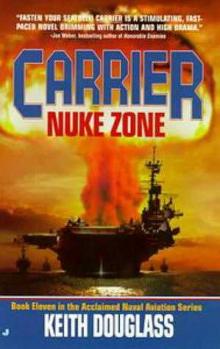 Nuke Zone c-11
Nuke Zone c-11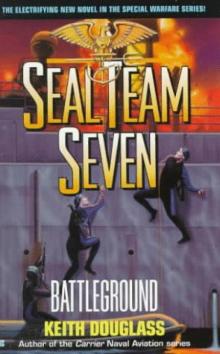 Seal Team Seven 6 - Battleground
Seal Team Seven 6 - Battleground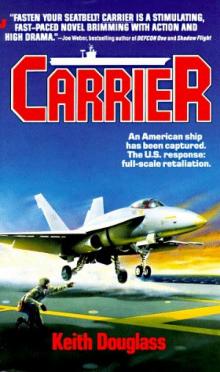 Carrier c-1
Carrier c-1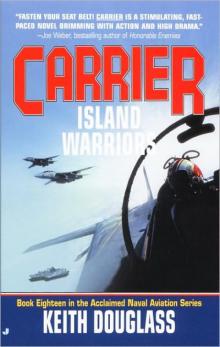 Island Warriors c-18
Island Warriors c-18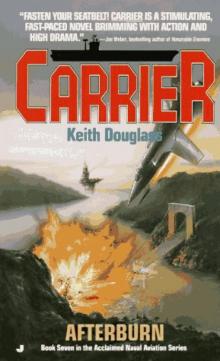 Afterburn c-7
Afterburn c-7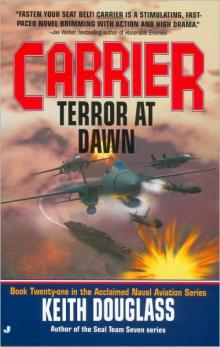 Terror At Dawn c-21
Terror At Dawn c-21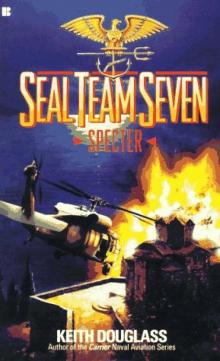 Specter sts-2
Specter sts-2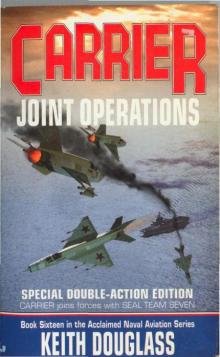 Joint Operations c-16
Joint Operations c-16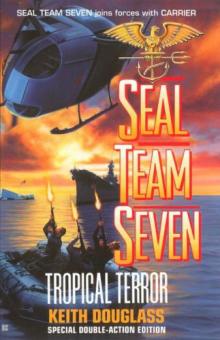 Tropical Terror sts-12
Tropical Terror sts-12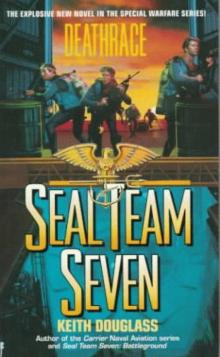 Seal Team Seven 7 - Deathrace
Seal Team Seven 7 - Deathrace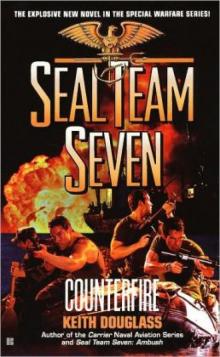 Counterfire sts-16
Counterfire sts-16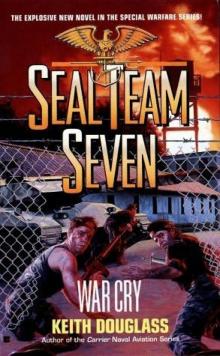 War Cry sts-9
War Cry sts-9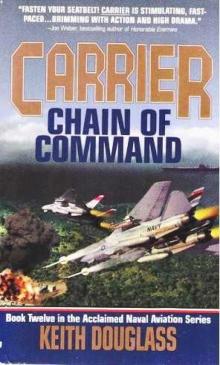 Chain of Command c-12
Chain of Command c-12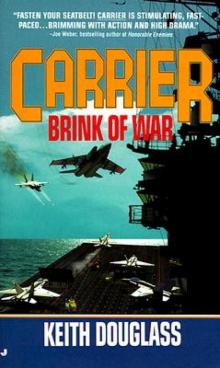 Brink of War c-13
Brink of War c-13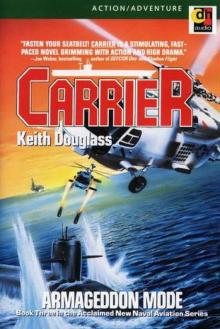 Armageddon Mode c-3
Armageddon Mode c-3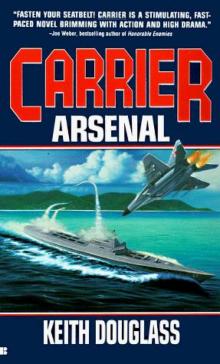 Arsenal c-10
Arsenal c-10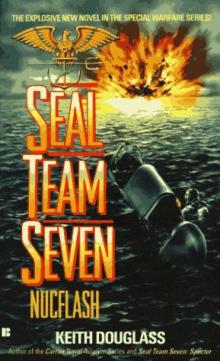 Nucflash sts-3
Nucflash sts-3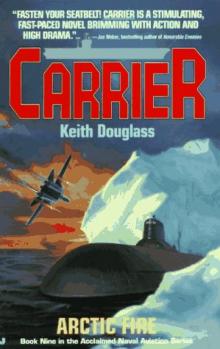 Arctic Fire c-9
Arctic Fire c-9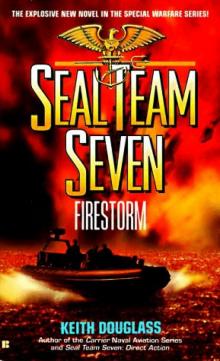 Firestorm sts-5
Firestorm sts-5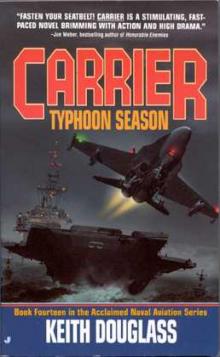 Typhoon Season c-14
Typhoon Season c-14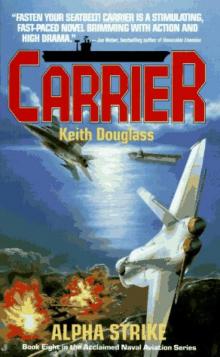 Alpha Strike c-8
Alpha Strike c-8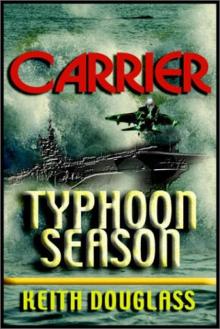 Carrier 14 - TYPHOON SEASON
Carrier 14 - TYPHOON SEASON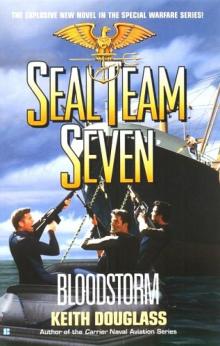 Bloodstorm sts-13
Bloodstorm sts-13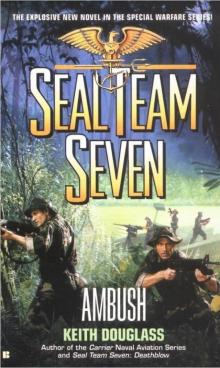 Ambush sts-15
Ambush sts-15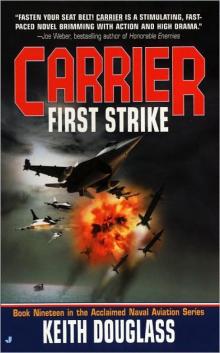 First Strike c-19
First Strike c-19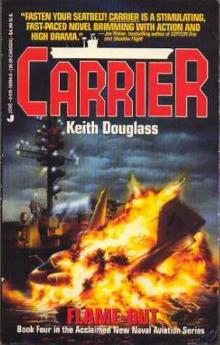 Flame Out c-4
Flame Out c-4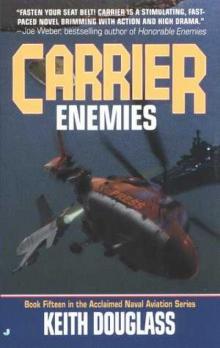 Enemies c-15
Enemies c-15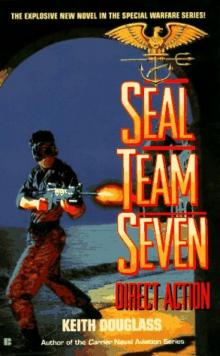 Seal Team Seven 04 - Direct Action
Seal Team Seven 04 - Direct Action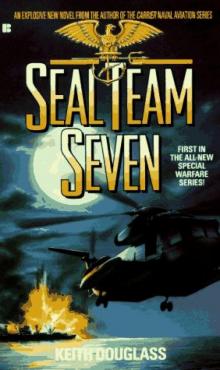 Seal Team Seven 01 - Seal Team Seven
Seal Team Seven 01 - Seal Team Seven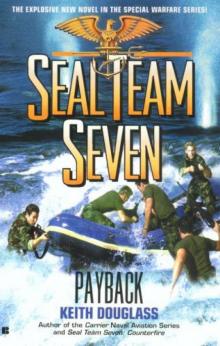 Payback sts-17
Payback sts-17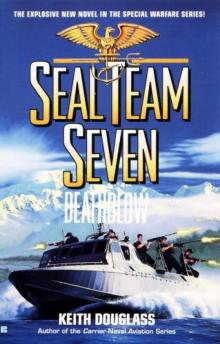 Death Blow sts-14
Death Blow sts-14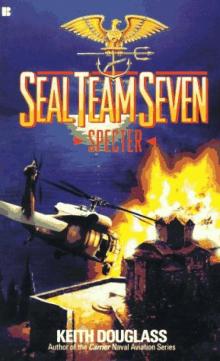 Seal Team Seven 02 - Spector
Seal Team Seven 02 - Spector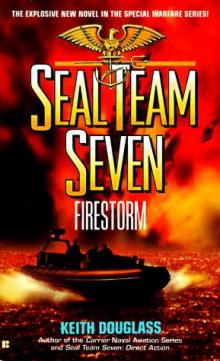 Seal Team Seven 5 - Firestorm
Seal Team Seven 5 - Firestorm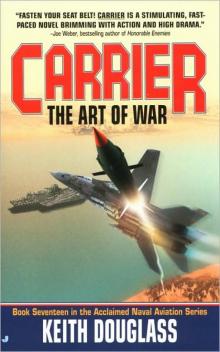 The Art of War c-17
The Art of War c-17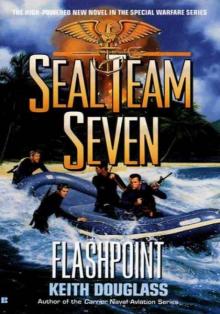 Flashpoint sts-11
Flashpoint sts-11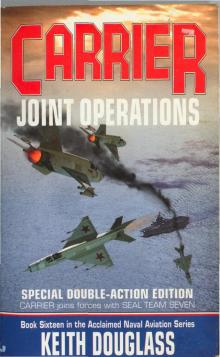 Carrier - Joint Operation Book 16
Carrier - Joint Operation Book 16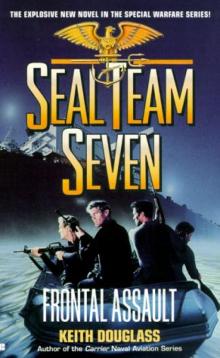 Frontal Assault sts-10
Frontal Assault sts-10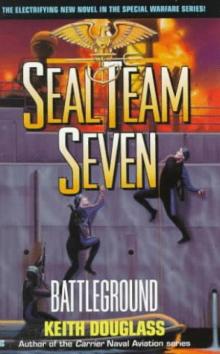 Battleground sts-6
Battleground sts-6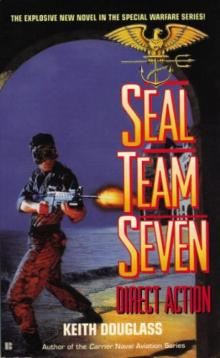 Direct Action sts-4
Direct Action sts-4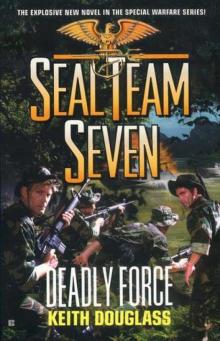 Deadly Force sts-18
Deadly Force sts-18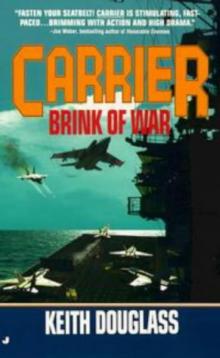 Carrier 13 - Brink of War
Carrier 13 - Brink of War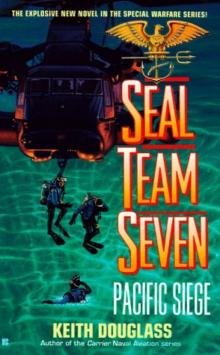 Pacific Siege sts-8
Pacific Siege sts-8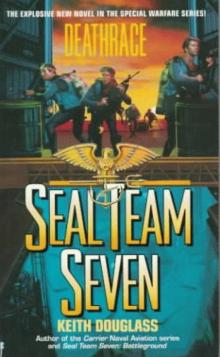 Deathrace sts-7
Deathrace sts-7